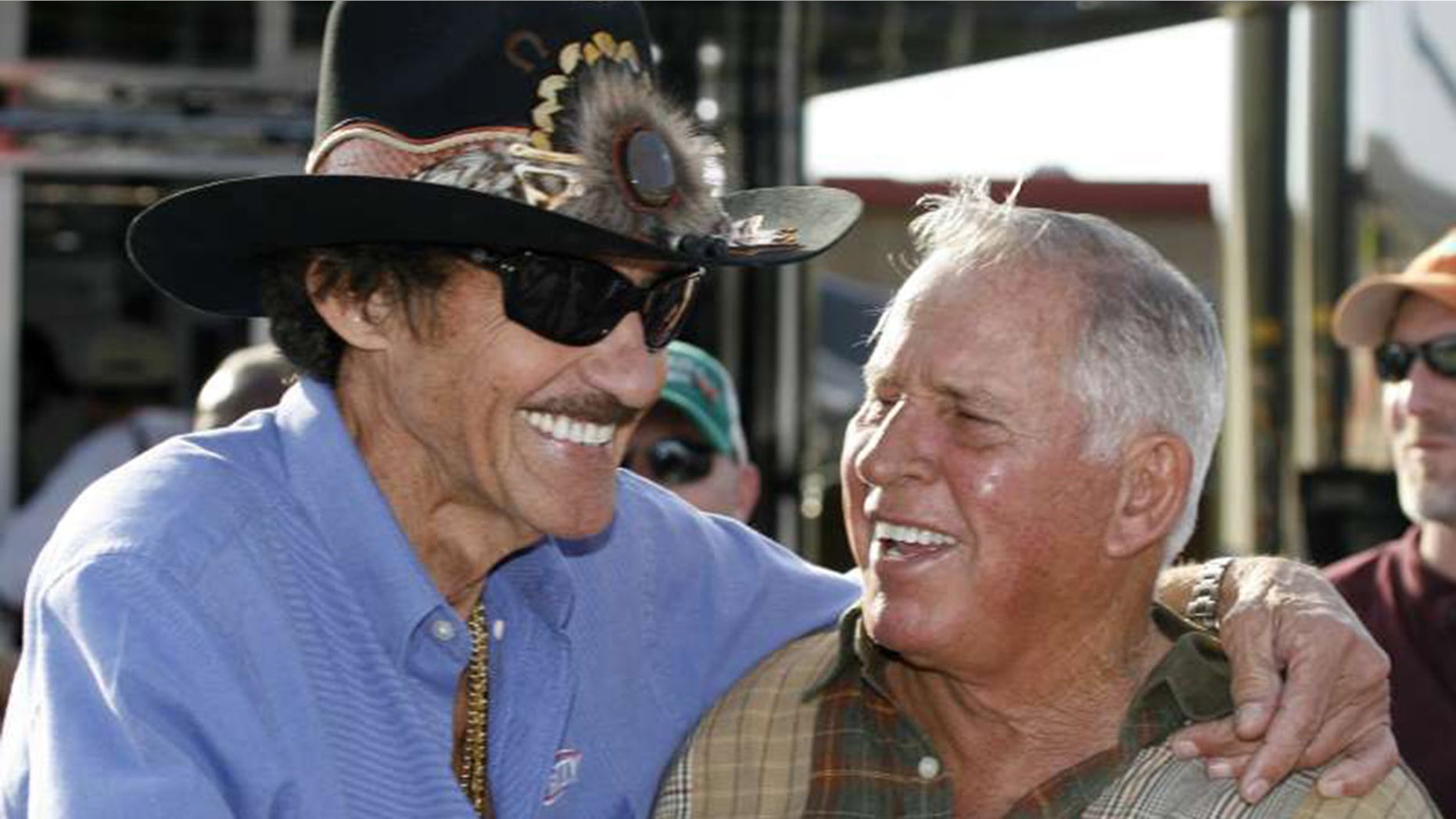Nascar has a long and storied history, but it also has a past littered with “What If?” questions. Join author Mike Mackler as he takes a look back at stock car racing’s 100 most-intriguing hypotheticals in “100 Stock Car Racing ‘What Ifs’”, the book available on Amazon in both Paperback and Kindle formats. Here’s a preview of one of the one hundred “What If” questions asked throughout the book:
14. What if David Pearson had run more full-season schedules?
 |
| Nascar's two-biggest rivals--who always brought out the best in each other |
Background: In the pre-1972 Grand National era it was hard to find a more-respected driver than David Pearson. The Silver Fox wound up totaling an amazing 105 premiere series wins from 1960-1980 and three season championships—all despite rarely running the full schedule.
What Actually Happened: After winning championships for Cotton Owens and Holman-Moody, Pearson went to the powerhouse Wood Brothers team, which at the time ran only a partial schedule.
What Could Have Been the Turning Point: What if the Wood Brothers had decided to run a full-season schedule full-time, perhaps spurred on by their rivalry with Petty Enterprises?
What COULD Have Happened: Who knows how many races and championships Pearson could have won with more chances to do so. Furthermore, while the Wood Brothers typically skipped most of the short-track schedule, Pearson was renowned as a complete racer who could win on any type of track.
 |
| The man who made The Wood Brothers into legends |
And if THAT Happened…: Richard Petty would likely still be known as “The King”, but that tidy total of 200 wins would likely be a bit less with Pearson competing on a full-time basis.
What Else Could Have Happened: Would Richard Petty have won all seven of his Cup championships? His competitive career more or less coincided with Pearson’s (Pearson’s final win was in 1980, one year after Petty’s final championship), so maybe it would be Dale Earnhardt Sr. and Jimmie Johnson alone at the top.
Why It Had to Turn Out The Way It Did: At the time there simply wasn’t enough money to make running a full-schedule profitable for most teams, hence why Pearson and the Wood Brothers stayed on a partial run for the 1970s.

